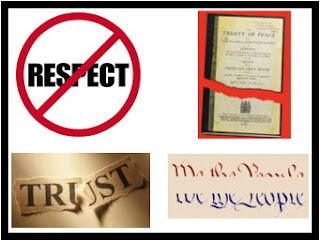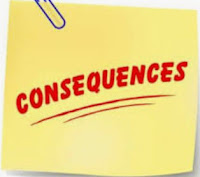Donald Trump began fighting with the news media as a 2016 candidate. At rallies, he leveled the charge “fake news” at
mainstream media organizations and reporters who challenged his actions or statements. That has continued since he took office. Now, in addition to attacking the press generally, Trump seems to have saved his most vitriolic and disturbing attacks for women reporters and minority women reporters.
Trump’s behavior threatens American democracy, demeans his office, and brings
closer the fears of encroaching fascism former State Secretary Madeleine Albright cautioned us about in her 2018 book Fascism: A Warning. The president’s treatment of the press underscores the need for removing him from office five months from now.
Special Disdain for Women
Though Trump does berate male reporters from time to time, recently he’s saved special invective for female journalists.
During news conferences and coronavirus task force briefings, Trump has said very unpleasant things to women attending and working at those meetings. They include:
· Calling one female CBS correspondent “fake” and “disgraceful.”
· Telling CNN’s Abby Phillips, “You ask a lot of stupid questions.”
· Saying to another female CNN reporter that, “You’ve had enough” when the woman tried asking a question.
· Once telling ABC’s Cecilia Vega, “I know you’re not thinking. You never do.”
Such insults produced former Fox News anchor Gretchen Carlson’s description of
Trump as a “misogynistic jerk.” She added that he treats women reporters differently than men and in a way that’s “horrible.”
Saving Real Vitriol for Minority Women
Soon after becoming president, Trump began insulting female reporters of color. He had
an early run-in with April Ryan of American Urban Radio Networks, asking her if she could arrange a meeting with the Congressional Black Caucus. She wrote a book, Under Fire: Reporting from the Front Lines of the Trump White House, in which she accused him of discriminating against minority journalists.
Trump later started a feud with Yamiche Alcindor, a black woman who once worked as
a reporter for The New York Times but now appears on the PBS News Hour and serves as an MSNBC contributor. Trump has asked her to be “nice” and not “threatening.” On several occasions he wouldn’t answer questions from her that seemed no more hostile than questions white male reporters ask.
Trump berating reporter Yamiche Alcindor
Most recently, Trump seemingly profiled a CBS reporter of Asian heritage, Weijia Jiang, telling her she should “ask China” a question about his early downplaying of the corona-
virus. She called him on that, asking why he directed such a statement at her. He later said she should “keep her voice down.”
The Ryan, Alcindor, and Jiang incidents suggest Trump believes he can bully minority
women reporters at will. Trump’s attacks on women journalists, including minority women, no doubt helped encourage a recent report by the Committee to Protect Journalists that described Trump’s war on the press as “dangerously under[mining] truth and consensus in a deeply divided country.”
Trump goes after reporters of all stripes who don’t work for Fox News. He calls them names, insults their intelligence, and denigrates the organizations for which they
work. Recently, for example, he took on The Washington Post White House Bureau Chief Phillip Rucker, co-author of A Very Stable Genius, a book highly critical of Trump’s actions as president.
Secretary Albright wrote “The advantage of a free press is diminished when anyone can claim to be an objective journalist, then disseminate narratives conjured out of thin air to make others believe rubbish.” (p. 114). We would add that destroying the credibility of the free press represents the first step in that process. Clearly, Trump wishes to bestow credibility on the part of the press that supports his conduct and attack the part that dares criticize him.
Time for Another Warning
Earlier this year, in a post titled From Russia With Love 2.0: American Democracy, Autocracy, Plutocracy, or Fascism? we cited Secretary Albright’s warnings about the fascist threat in light of new reports concerning Russian plans for interfering in this year’s presidential election. Trump’s
attacks on the press, particularly by targeting women and minority journalists, require that we turn to Secretary Albright once more. On the press issue, she asked, “If the president of the United States says the press always lies, how can Vladimir Putin be faulted for making the same claim?” (p.5). Later, she noted how “contagious” anti-press behavior becomes. Not long after Trump excluded prominent reporters from his news conferences, other governments began taking actions against reporters who wrote stories those governments didn’t like and called them “fake news.” (pp. 212-13)
We can’t stress enough how strongly we believe Trump’s attacks on the press threaten American democracy as much or more than other actions he’s taken. The fact he picks on and insults women, especially women of color, just makes it worse. We can’t let our outrage wane though his persistent, destructive behavior continues unabated. A “new “normal” is too dangerous.
We’re reminded of the wisdom in Thomas Jefferson’s 1787 observation that, “Were it left to me to decide whether we should have a government without newspapers or newspapers without a government, I should not hesitate a moment to prefer the latter.”
We’ve often pointed out the many reasons the American people must remove Trump and preserve the democracy we’ve painstakingly built over almost 250 years. Trump’s press interaction, especially with women reporters, ranks right at the top.
















































